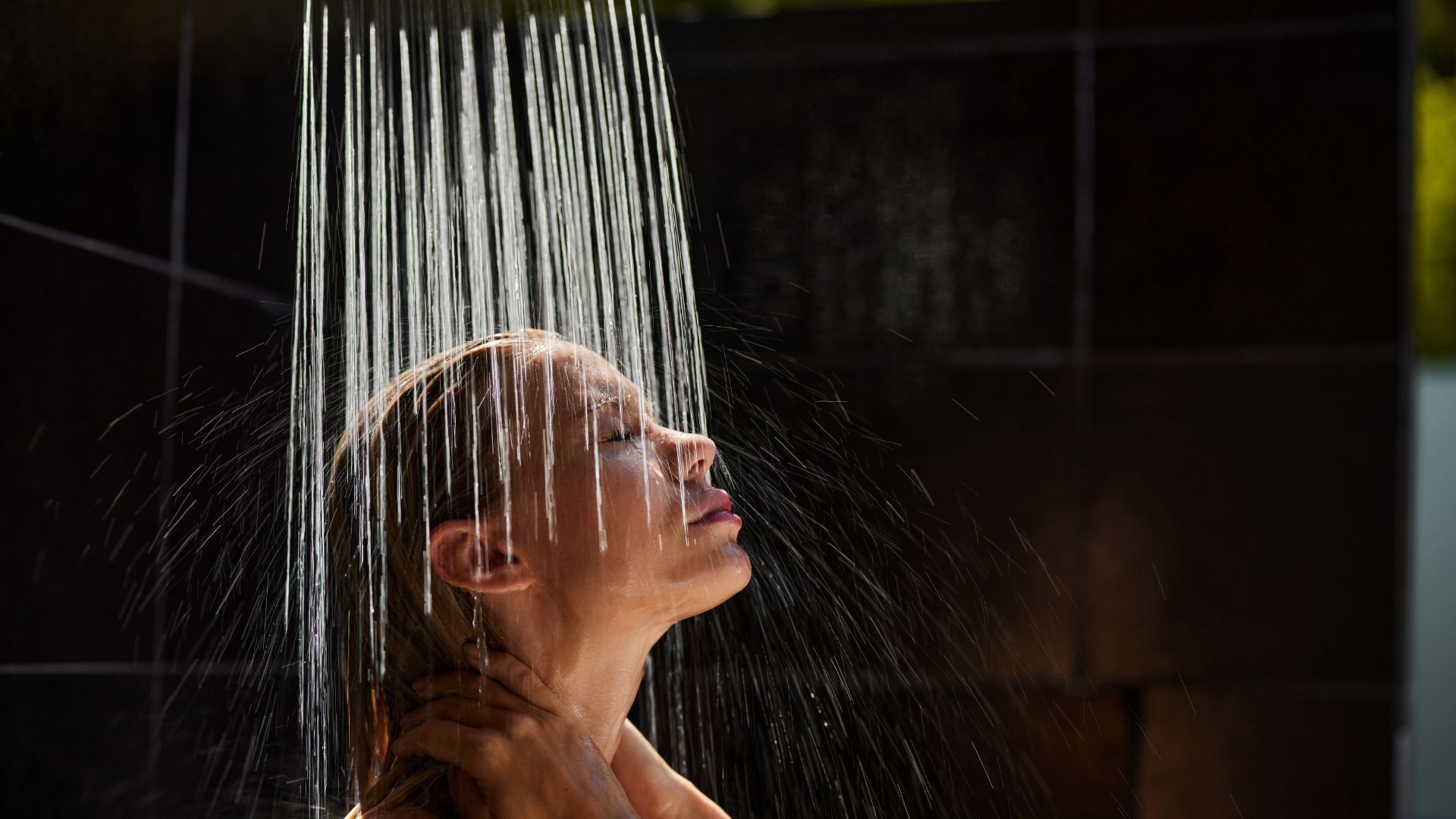Taking a shower once a day or more is a habit that 66% of Americans observe, and while that’s great for hygiene, the majority of people can probably get away with showering just several times a week. But when it comes to sleep, it’s the timing, not the frequency, of your shower that may be most important.
After speaking to experts, an evening shower, compared to the morning, emerged as having the greatest benefits to our slumber.
To find out why and what those advantages are, read on for more from Dr. Hana Patel, NHS GP and resident sleep expert at Time4Sleep, and Dr. Leah Kaylor a licensed psychologist specializing in sleep and author of the upcoming book, If Sleep Were a Drug.
Nighttime shower vs morning shower
Showering in the morning and the evening both have benefits, and neither is going to ruin your sleep.
A morning shower will cleanse your body of any sweat, bacteria and dead skin cells you might have accumulated overnight from your bedding, and it freshens you up for the day ahead.
An evening shower can increase the amount of deep sleep you achieve by 10–15%
Evening showering, meanwhile, gets rid of grime and dirt from the day, and helps remove any products you’ve applied to your skin.
If you swear by a morning shower, Dr. Kaylor explains that it “won’t harm your sleep directly,” however it’s worth keeping in mind that “it won’t give you the same nighttime benefits either.”
“An evening shower can increase the amount of deep sleep you achieve by 10–15%, setting you up for a restful night’s sleep,” Dr. Kaylor adds.
So what exactly are the sleep benefits a shower at night brings?
How a nighttime shower leads to better sleep
1. Less congestion
If you’ve ever tried to sleep with a blocked-up nose, you’ll know how hard it can be to drop off, not to mention, mouth-breathing due to congestion can disrupt your sleep. Luckily, an evening shower can help with this.
“Steaming is one of the best natural remedies for shifting a mucus build-up in your nose,” says Dr. Patel.
“Taking a nice hot shower before bed and breathing the steam in through your nose will not only temporarily clear your sinuses, but will also help you feel more relaxed before you go to sleep,” she explains.
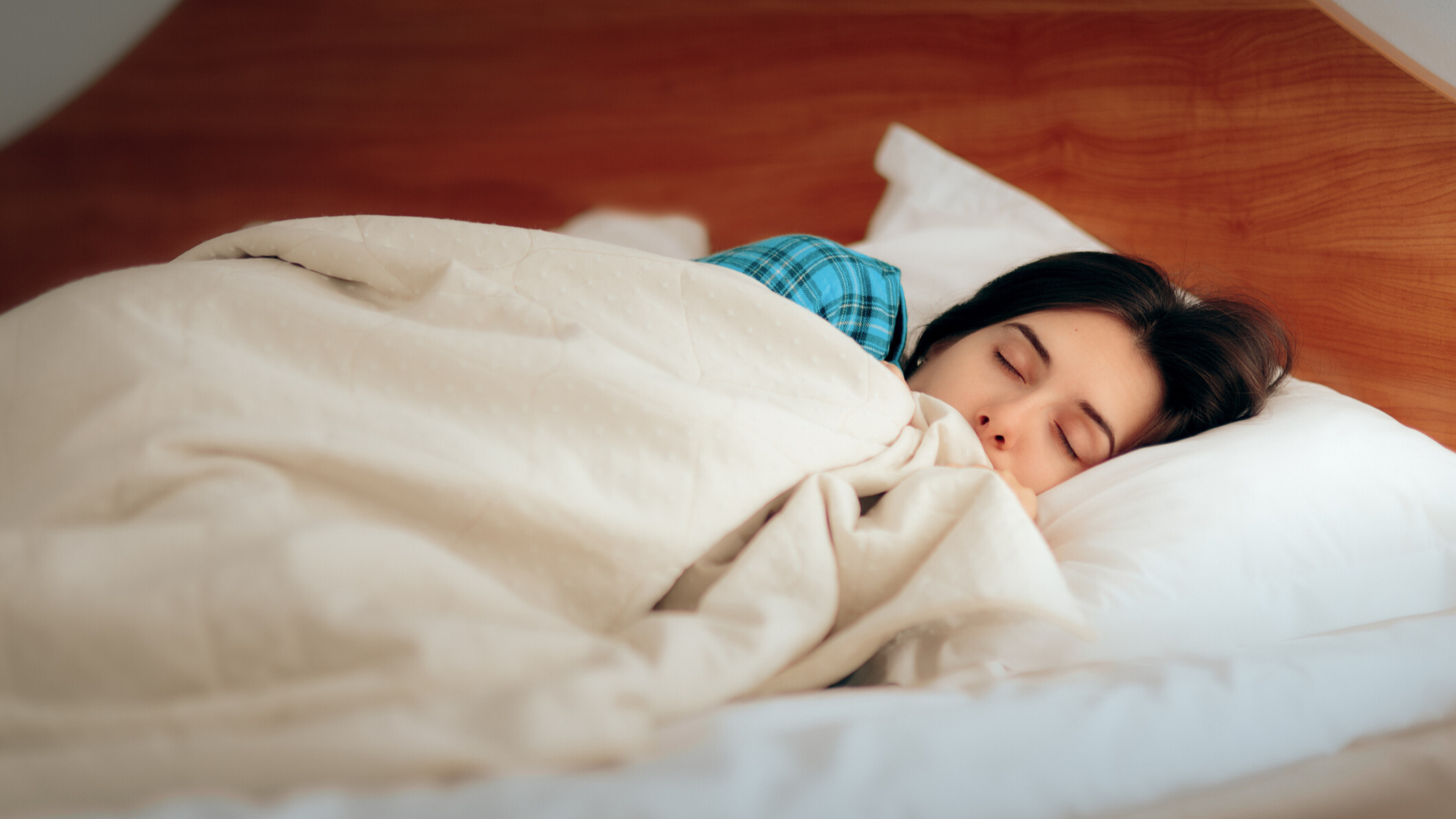
2. Muscle relaxation and recovery
Dr. Patel explains that sleep not only gives our muscles time to recover but getting enough provides us with enough energy to exercise in the first place.
That’s why it’s important, she says, to “try to develop habits that allow your body to prepare itself for bed,” she adds.
One such habit is taking a warm shower before bed.
“Relaxation techniques such as a hot bath or shower can help to relieve anxiety, reduce muscle tension, and allow you to fall asleep more easily,” explains Dr. Patel.
Dr. Kaylor agrees that the warm water from a shower “relaxes muscles and joints [and] eases physical tension.”
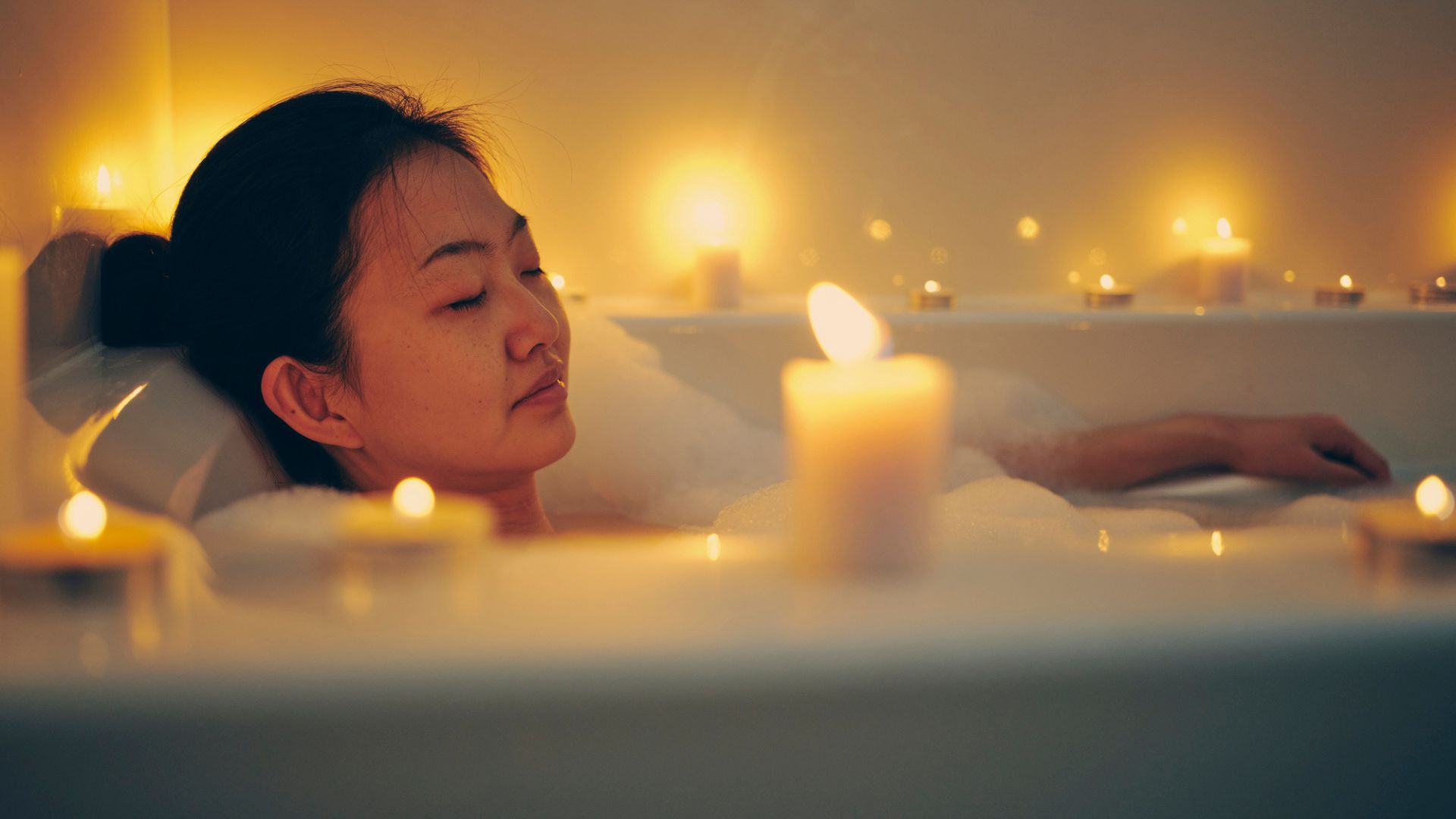
3. Temperature changes
One of the more surprising benefits of taking a warm shower in the evening is how it can lead to a cooler body temperature we need to drift off easily. Confused? Dr. Kaylor explains how it works:
“Your body’s core temperature naturally drops at night to signal sleep,” she says. “Though it may seem counterintuitive, a warm shower or bath initially raises your temperature, causing blood vessels to dilate and release heat.”
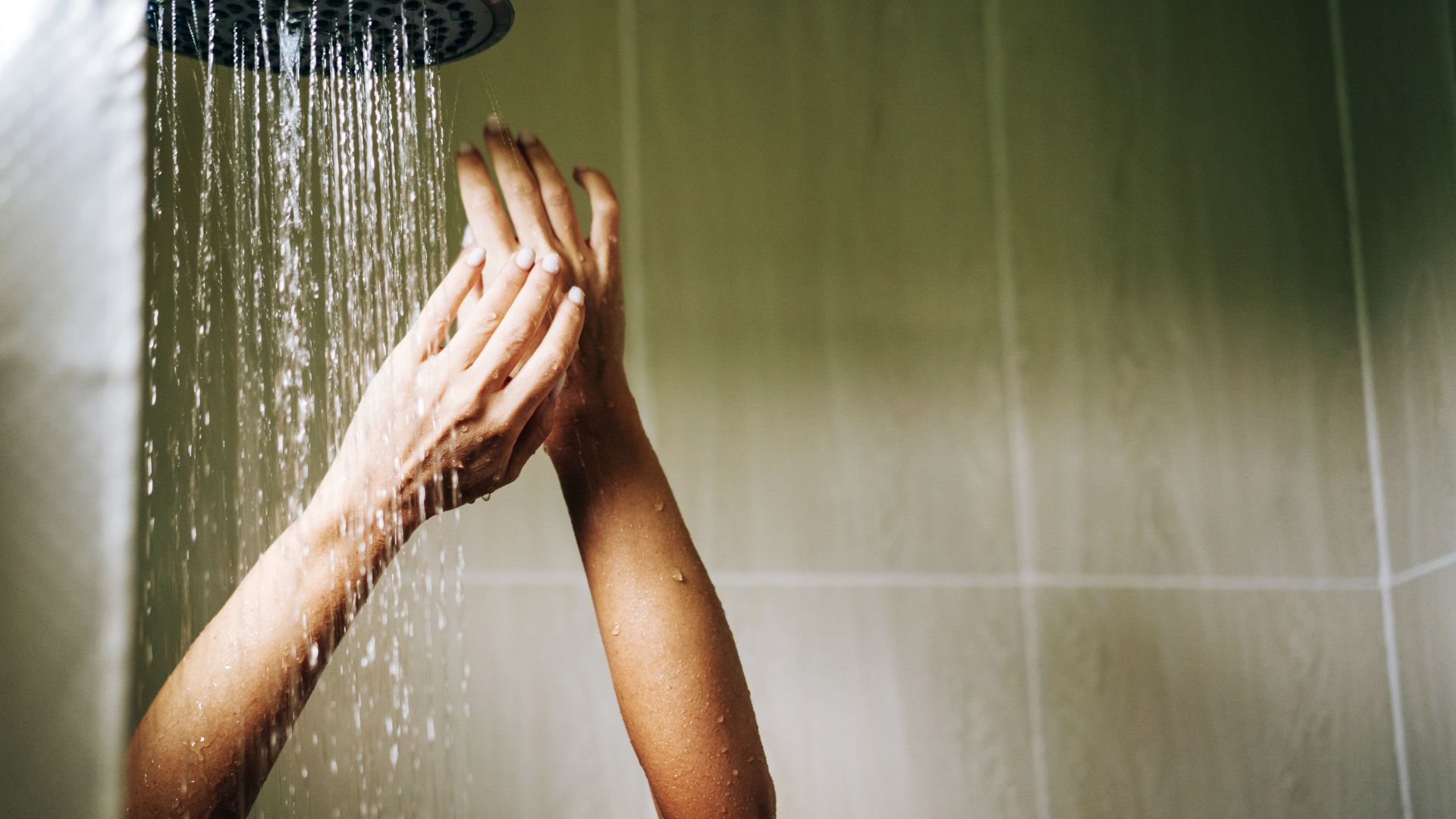
“When you step out of the shower/bath and into a cooler environment, your body begins to rapidly lose heat, causing a drop in body temperature,” she continues.
“This emulates the natural cooling process that occurs when your body prepares for sleep.”
So what kind of shower temperatures should we aim for, and when exactly should we time it for these sleep-boosting benefits?
A review of studies showed that taking a warm bath or shower at 40-42.5 °C was associated with improved sleep efficiency and sleep quality. Plus, taking said shower for even just 10 minutes between 1-2 hours before bedtime significantly shortened sleep onset latency (the amount of time it takes to fall asleep).
4. A calming nighttime routine
“The best way to improve your sleep is to establish a regular nighttime routine,” says Dr. Patel.
This is a series of calming activities in the lead-up to your bedtime, which serve to relax you and send a message to your brain that it’s ‘sleep time.’
Dr Patel explains that including “a relaxing activity, such as a warm bath or shower, before bed can be helpful.”
While you could choose anything from stretching to journaling, reading or light yoga, Dr. Kaylor also explains that an evening shower “calms your ‘fight-or-flight’ system.”
“You can get even more bang for your buck by adding calming elements like Epsom salts for muscle relaxation or essential oils to enhance the soothing effects,” she adds.
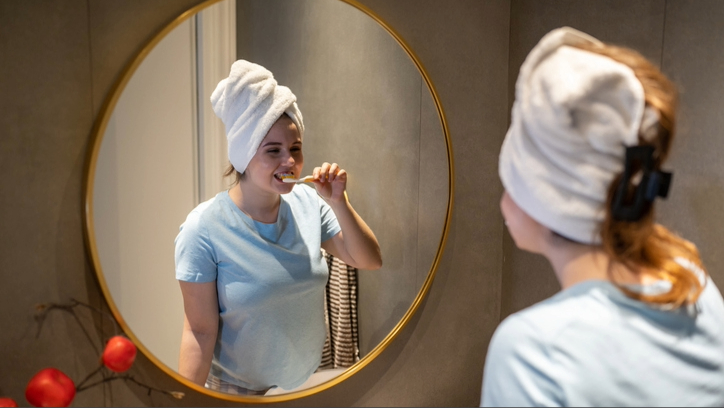
5. Better sleep hygiene
While we often talk about sleep hygiene, which includes habits and routines you follow in order to optimize your sleep, here we literally mean that you’re creating a more hygienic sleep for yourself
Ridding your body of dirt, natural oils and skin products like sunscreen with a warm shower in the evening, also prevents them from joining you in bed and migrating to your bedding and mattress.
And, you’re going to be washing away any pollen or dust mites that you might have acquired during the day. This means less chance of allergies disrupting your sleep, and causing itchy eyes and sneezing while you’re in bed.
3 more tips for better sleep hygiene
Create a cool, dark and quiet sleep environment
Optimizing your bedroom for sleep is a tip we often suggest at Tom’s Guide, so we’re pleased Dr. Kaylor notes that “keeping your bedroom cool, dark, and quiet,” is a good sleep hygiene habit to follow beyond showering.
As the cooler months approach, it might be tempting to put the heating on at night in your sleep space to make it cozier. But keeping your bedroom at 16-19C (or 60-67F) is ideal for most people and will help promote sleep.
Sound and light pollution can both prevent you falling asleep easily and disrupt your rest, which is where a sleep mask and earplugs can be an affordable solution.
If you have the budget, the Aura Sleep Mask blocks out light and also has inbuilt speakers that can play soundscapes to mask any ambient noise.

Invest in the right mattress for you
There’s little point creating the perfect environment for sleep if you don’t have the best mattress for your sleep needs.
If you’re unsure about how to go about choosing the right bed for you (after all, there are hundreds of options out there), take a look at our guide on how to choose a mattress.
Compiled by Tom’s Guide Senior Sleep Editor and Certified Sleep Coach, Claire Davies, it includes everything from the types of mattresses available and different firmness levels and depths, to what you should look for based on your sleeping style, body weight and budget.
Think about any additional needs you have, too. For example, if you overheat at night you might want to consider one of the best cooling mattresses, and our guide to the best mattresses for back pain is essential reading for anyone who experiences issues with pain.
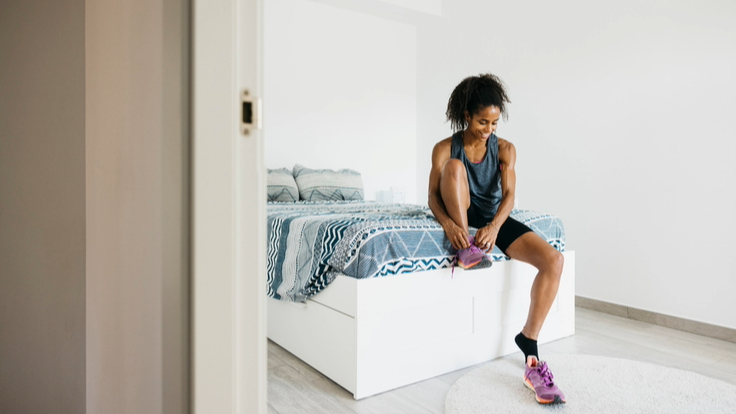
Stick to a consistent sleep schedule
We’ve saved the easiest tip for last: maintaining a regular sleep schedule. All this means is keeping your bed time and wake time the same throughout the week (yes, that means on the weekend too — sorry!).
This simple habit helps regulate your internal body clock, known as your circadian rhythm, which in turn means you’ll be producing sleep hormones (like melatonin) at the right time in the evening, so you can fall asleep faster and get a better night’s rest.
If you’re concerned that your sleep schedule isn’t as consistent as you’d like, check out our guide on how to reset your sleep schedule, with expert tips that are easy to action.

